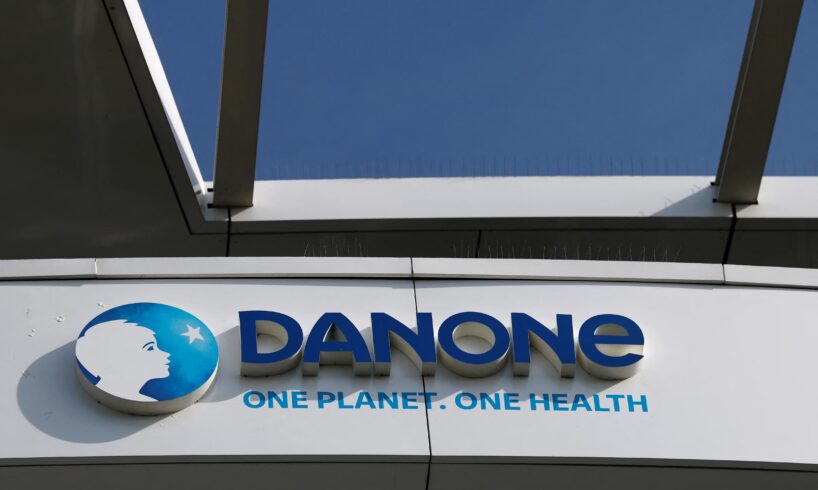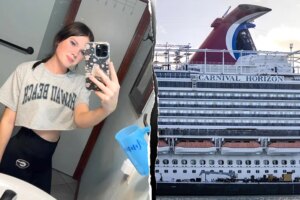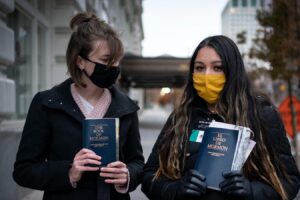
The Canadian subsidiary of French dairy giant Danone SA has reached a $6.5-million settlement agreement in connection with last year’s deadly listeria outbreak in plant-based milks.
The agreement, which will go before the Superior Court of Quebec for approval in January, also names as defendants Joriki Inc., Intact Insurance Co. and Walmart Canada Corp.
Danone Canada had contracted third-party manufacturer Joriki to make its Silk brand plant-based milks at a facility in Pickering, Ont. Earlier this year, Joriki filed for protection from creditors. Intact was Joriki’s commercial general liability insurer at the time of the recall.
Walmart’s Great Value brand plant milk was subject to the recall because it was made on the same production line as the implicated Silk products, but Great Value products were not themselves linked to the outbreak.
The compensation, which ranges from $400 to up to $300,000 depending on the severity of the person’s case, will be paid out by the defendants, except Walmart, according to the court documents.
Several varieties of almond, coconut and other plant milks under the Silk and Great Value brands were recalled on July 8, 2024, after public-health officials linked listeria cases to a production line at the Pickering site. Three people died and dozens more were sick.
A Globe and Mail investigation last year found that an algorithm-based system used by the Canadian Food Inspection Agency to prioritize inspections contained flaws, including inaccurate data inputs, and left large numbers of sites without proper scrutiny, including the Pickering factory at the centre of the outbreak. The factory was never scrutinized for listeria protocols because it had been deemed low risk by the regulator.
In August, a review by CFIA Inspector-General Scott Rattray concluded that the algorithm-based system needed an overhaul and that the CFIA had failed to meet its annual inspection targets, with many facilities going unscrutinized. The federal agency responded with an action plan that features a mass campaign of inspections and a greater onus on companies to demonstrate that their sites are safe.
The class-action agreement alleges, among other things, that the recalled products “were not fit for the purposes for which goods of that kind are ordinarily used, and that the defendants have been negligent in the management of their recall programs.”
Federal probe into deadly listeria outbreak finds major flaws with algorithm guiding inspections
The agreement states that the defendants deny those allegations and that the settlement is not an admission of any wrongdoing of any kind on their part.
If the settlement is approved at the Jan. 26 court hearing, compensation will be paid out across six tiers. For the most basic level of compensation, claimants are only required to sign a declaration that they bought and consumed a recalled product. But claimants seeking higher levels of compensation require more extensive documentation.
Under the proposed terms, compensation of $400 would be paid to those who developed symptoms for a period of 48 hours consistent with listeriosis or a psychological disorder after consuming a recalled product; $1,500 for people with symptoms lasting between 48 hours and one week; $7,000 for those with symptoms lasting more than one week but not requiring hospitalization (this includes those whose listeriosis symptoms caused miscarriage); up to $30,000 for those with symptoms lasting more than a week requiring hospitalization, but who did not develop complications or permanent symptoms; up to $150,000 for those with symptoms lasting more than one week, requiring hospitalization and resulting in severe complications or permanent symptoms; and up to $300,000 for those whose symptoms resulted in death.
In addition to victim compensation, the $6.5-million agreement includes administration fees associated with the lawsuit, legal fees and amounts to be paid to provincial healthcare insurers related to medical costs related to the outbreak.
Anyone who consumed a recalled product and experienced symptoms is automatically included in the class, unless they formally opt out of the agreement, for instance to preserve their ability to sue individually. Information about the class action, including how and when to submit a claim form, is available at plantbeverages-settlement.com.
Federal food-safety regulator launches inspection blitz after deadly listeria outbreak
“We think the proposed settlement provides adequate compensation for the harm suffered by Canadians,” said Joey Zukran, a lawyer with LPC Avocats in Montreal who represents the class members in the lawsuit. “It also provides an efficient resolution to the case, without the risks associated with a lengthy trial.”
According to the 99-page settlement agreement, a one-day mediation session was initially unsuccessful, but a retired justice of the Superior Court of Quebec assisted with negotiations and a proposed deal was signed.
Investigation: An algorithm was supposed to fix Canada’s food safety system. Instead, it missed a deadly listeria outbreak
Danone Canada spokesperson Jennifer Vincent said in an e-mail Friday the company is “fully cooperating with all parties and remains actively engaged in the legal proceedings to achieve a timely and appropriate resolution for its consumers.” A spokesperson for Intact said the company had nothing to add beyond Danone’s statement.
Stephanie Fusco, a spokesperson for Walmart Canada, said in an e-mail that the company is “aware” that a settlement agreement has been reached. “At Walmart Canada, food safety is a top priority and we acted swiftly to respond to this issue,” she said.
The court documents state that the defendants are entering into the agreement in order to achieve a “final and nationwide resolution of all claims” asserted in the Quebec proceedings – and by the plaintiffs in a separate proceeding commenced in B.C. in the summer of 2024. The settlement is conditional upon the dismissal of the B.C. proceedings.





